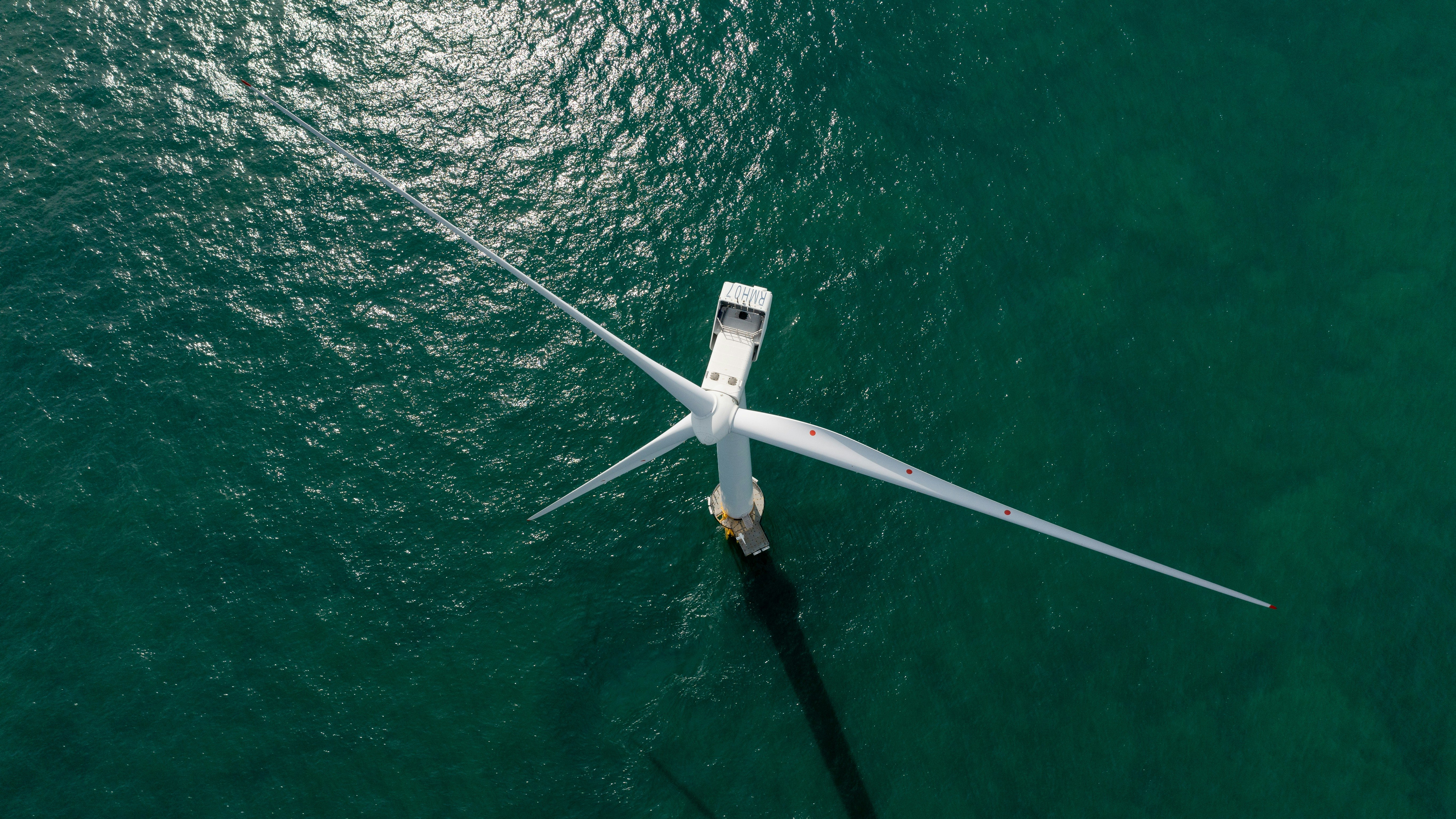
The Crown Estate commits £50million to accelerate the UK’s offshore energy ambitions and protect the marine environment
The Crown Estate has doubled its commitment to enable the coexistence of offshore wind farms with a thriving marine environment as the nation ramps up aspirations to accelerate homegrown energy independence.
Since the launch of the UK Government’s British Energy Security Strategy - which raises ambitions for offshore wind generation to achieve up to 50GW by 2030 alongside commitments to environmental restoration - The Crown Estate has committed a further £25 million into its Offshore Wind Evidence and Change Programme, bringing the total investment intent up to £50 million.
The programme is gathering and harnessing the necessary data and evidence to propel forward the growth of UK offshore wind at pace, while maintaining clean, healthy, productive and biologically diverse seas. It is being delivered in partnership with the Department for Business, Energy and Industrial Strategy (BEIS), and the Department for Environment, Food and Rural Affairs (Defra), working closely with Scottish, Welsh and Northern Ireland government bodies, regulators, NGOs and a broad range of industry representatives, all who play a key role in planning for the future of offshore wind across the UK.
There are 23 projects in the current portfolio representing £33milion of funding - £22million from The Crown Estate's core investment fund, and £11million of co-funding or in-kind contributions. The projects are helping to find space in a busy seabed through spatial co-ordination and co-location; and are designed to inform policy and regulation to enable a more integrated design of windfarms and the natural environment. This includes potential environmental compensatory measures to address environmental impacts and support timely and informed decision-making.
The additional funding will be used to deliver research and data projects that support the acceleration of offshore wind deployment including projects that address priority bird, marine mammal and seabed habitat research gaps identified in year one of the programme. There will also be a renewed focus on floating offshore wind and cable infrastructure. In direct response to the British Energy Security Strategy, alongside the focus on strategic compensation, the programme will support the work of the government’s new Marine Recovery Fund and implementation of nature-based design standards.
The programme links in closely with the UK Government’s Marine Spatial Prioritisation Programme which is gathering further data and building evidence; as well as a number of other related industry initiatives, such as those led by Renewable UK, the Offshore Wind Industry Council and the Seabed User and Developer Group.
Dan Labbad, Chief Executive of The Crown Estate, said: “As the need to accelerate offshore wind deployment ramps up, restoring our natural environment has never been more important. We are committed to safeguarding the marine environment whilst shaping, innovating, informing and enabling the development of offshore wind for the long-term benefit of the nation. By doubling our investment in the Offshore Wind Evidence and Change programme, we can continue to provide world class data and evidence to support both government and the industry in making the best decisions to unlock the pathway to net zero, in harmony with healthy, biodiverse seas.”
Energy Minister Greg Hands said: “Delivering clean, affordable and homegrown energy is an urgent priority for this government as we made clear in the British Energy Security Strategy.
"This investment will help support that, boosting our status as an offshore wind superpower while protecting our iconic island coastline.”
Environment Minister Rebecca Pow said: "Our marine environment is a vital asset in developing a clean, affordable and secure energy supply here in the UK.
"Data and evidence is integral to achieving this, and I’m delighted funding is in place for further research and data projects that will accelerate progress towards offshore wind deployment while continuing to meet our commitments on ocean recovery”.
Welsh Minister for Climate Change Julie James MS said: “We are committed to scaling up the deployment of renewable energy in Wales and we recognise the significant potential off the coast of Wales. It is essential that the way we manage our natural resources in Wales respects both the climate and nature emergency. That is why developing the evidence base that can be applied in the Welsh context is so important to ensure our path to net zero is a sustainable one for current and future generations”.